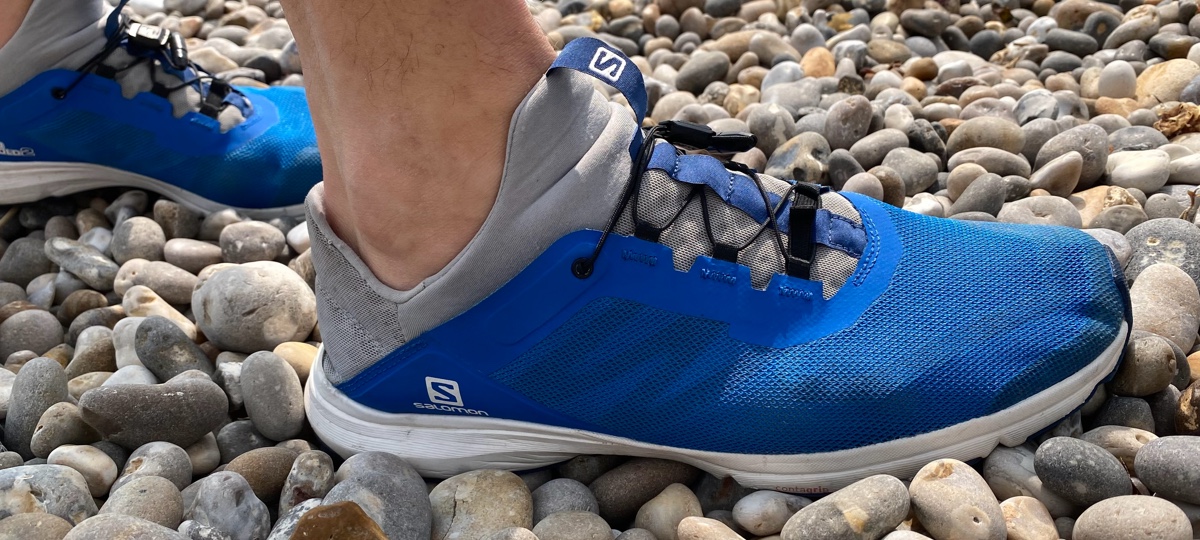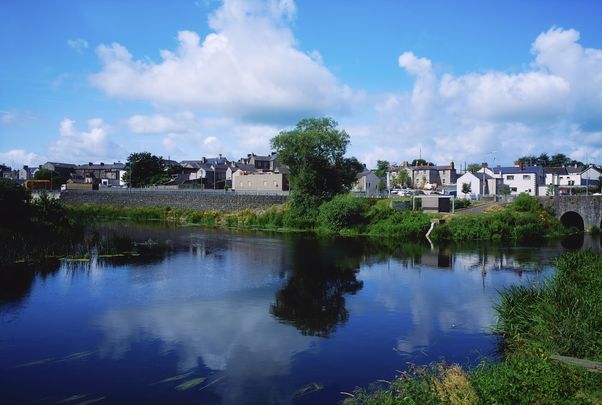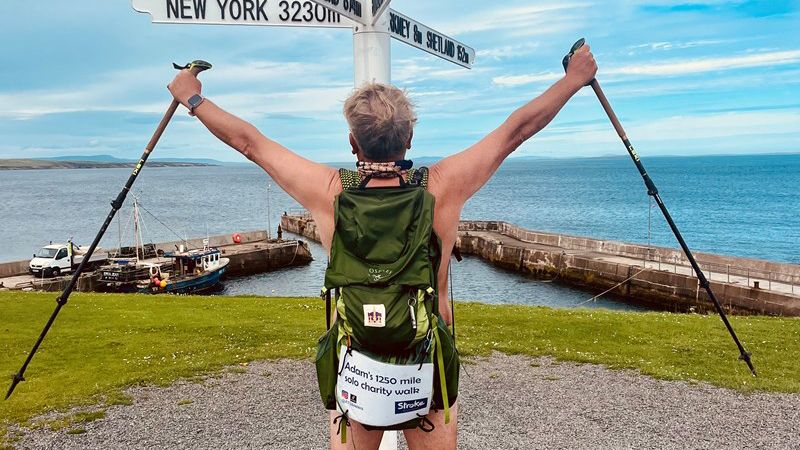Most water shoes are – if we’re being completely honest – ugly looking things that we wear purely for their practical applications (and quickly kick off once we’re clear of the wet stuff). Salomon Amphib Bold 2 water shoes, however, are an entirely different kettle of fish. Immediately impressed by their stylish look, I was quick to put these versatile, smart shoes on long before I was anywhere near the water, and I have henceforth always been happy to keep wearing them long after leaving the beach behind.
But good looks only get you so far – I wasn’t so bedazzled by their beauty that I’d be willing to give them a free pass or forgive them for any poor performance issues during the testing process. So, to discover how they compare to the , for the last nine months I’ve been putting the Salomon Amphib Bold 2s through their paces, tackling shore-hugging trails, exploring rocky beachside paths, going , wading out into the waves for sessions, doing the occasional SwimRun adventure and wearing them while paddling a range of craft, from canoes and kayaks to SUPs. In order for any water shoe to work effectively, it’s imperative for the chassis to drain very quickly – this happens automatically with of course, but with sneaker-style shoes such as the Amphib Bolds, it’s more of a challenge.

To facilitate rapid draining, the designers at Salomon have stretched a loose-knit mesh across a TPU skeleton, forming an upper that protects the top of your foot from the sun and other things, but lets water in and out freely. Made from a hydrophobic synthetic material that barely absorbs any water, this upper is very quick to dry after being submerged (but it’s just a shame it’s not constructed from recycled fabric). The other main element of the handsome upper is a floating tongue, which covers your forefoot beneath the lace system (to provide more weather protection and keep debris from getting into the chassis) but isn’t attached to the sides of the shoe.
It is, however, integrated with the soft heel, which is itself an innovative and highly functional feature. It’s important, of course, that water shoes can be secured tightly to the foot (so they don’t get ripped off in surf or stuck in silty conditions), while also being quick and easy to put on and take off. There are two ways to wear the Amphibs: you can put your entire foot in them and tighten the shoe using the Quicklace system (which has a BOA-style cord and toggle, and works really well), or you can push your forefoot into them and crush the heels down (they’re designed to fold for this purpose), and wear them like a slider.
The Quicklace system passes through six robustly stitched eyelets, and there’s an elasticated band to tuck the toggle through, which keeps it from flapping around or becoming a snag hazard. Salomon don’t wax lyrical about the materials used in the midsole, because this is less of a priority in an aquatic shoe than it is in a running hoof, but there is quite a bit of padding between the insole and the outsole, which supplies some bounce when you’re bounding around. Protection is more important than cushioning in a water shoe, partly to prevent the risk of sharp sticks, stones or other things puncturing the sole of your foot when you’re walking around or stepping down into murky water from a boulder, board or boat, and the Amphibs certainly have this side of things covered.
There’s no rockplate, but the depth of the sole is substantial enough to supply a really good buffer. The second form of protection the sole needs to serve up is some grip to keep you on your feet in potentially very slippery environments, such as wet and weed-covered rocks. To this end the Amphibs boast a contoured Contragrip outsole complete with rubber lugs, arranged to provide traction in watery terrain.
As a water shoe first and foremost, the Amphibs are designed to be worn like , which can lead to comfort concerns, with blisters a potential worry (especially in salty water). However, in all the different ways I’ve used these shoes over the last three seasons, I’ve never had a problem in this regard – not a single blister or any hint of rubbing discomfort. The collar is really soft around the lower ankle area, and the mesh doesn’t appear to be at all abrasive on the upper foot.
I particularly love the fact that the Quicklace system enables me to put the Amphibs on fast, but then secure them tightly to my feet, so I never have to worry about them coming off in the water. This snug, comfortable fit also means I can happily walk and run reasonable distances in these shoes. They’re not as high-performing on rocky routes as a proper pair of , of course (especially in terms of having a cushioned midsole), but Salomon know what they’re doing here, and the Amphibs have sufficient suspension where it counts – certainly more than you’ll find in a – and I’ve found them to be perfectly capable of getting me around most courses.
I also enjoy having the capability to just slip my foot quickly into the shoes and wear them like Crocs – although they can easily come off when you adopt this approach, and I definitely wouldn’t recommend it when running or wading through water. When laced up properly, however, I feel very secure and confident in the hold these shoes have on my feet, which inspires confidence. The floating tongue does a good job of keeping grit and pebbles out of the main shoe too, and it has saved me from sunburn on the top of my feet while paddling several times.
I’ve also found that the grip, traction and control supplied by the Contragrip outsole is really decent, and I don’t recall having ever lost my footing while wearing the Amphibs, even when hopping across weed-covered rocks or dragging boats around on slimy slipways. Essentially, this versatile sneaker really comes into its own during summer, but while it doesn’t offer a great amount of thermal protection from the cold, I found that I was completely comfortable wearing the Amphib Bolds in and around water from early spring to mid fall, without freezing my pinkies off, especially when engaged in high-energy activities such as paddling..



















